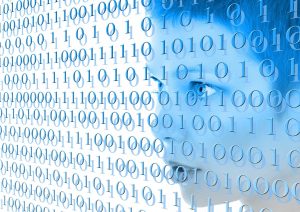
Introduction:
Remote technical support is a convenient way for individuals and businesses to receive technical assistance without leaving their location. However, with the increasing use of remote technical support, there are concerns about the security of data transmission. In this article, we will discuss the security concerns associated with remote technical support and explore ways to ensure safe transmission of data.
I Encryption
Encryption is the process of converting data into a coded format that can only be read by authorized parties. Remote technical support providers should use encryption to secure data transmission.
Solution: Encryption helps to prevent unauthorized access to sensitive data.
II Access Control
Access control is the process of limiting access to data to authorized parties only. Remote technical support providers should implement access control measures to ensure that only authorized technicians have access to sensitive data.
Solution: Access control helps to prevent data breaches and other security threats.
III Remote Access
Remote access is the ability to access a computer or network from a remote location. Remote technical support providers should use secure remote access tools to prevent unauthorized access to customer computers.
Solution: Secure remote access tools help to prevent security threats such as hacking and malware.
IV Data Backup
Data backup is the process of creating a copy of data in case the original data is lost or damaged. Remote technical support providers should implement data backup measures to ensure that customer data is not lost.
Solution: Data backup helps to ensure that customer data is available even in the event of a security breach or other disaster.
V Compliance
Compliance refers to adherence to industry-specific security standards and regulations. Remote technical support providers should ensure that they are compliant with relevant security standards and regulations.
Solution: Compliance helps to ensure that customer data is protected according to established security protocols.
Conclusion:
Remote technical support provides a convenient way for individuals and businesses to receive technical assistance. However, there are security concerns associated with remote technical support, particularly with regards to data transmission. Encryption, access control, secure remote access tools, data backup, and compliance are all important measures to ensure safe transmission of data. By implementing these measures, remote technical support providers can ensure that customer data is protected and secure.
FAQs:
How can I ensure that my data is secure during remote technical support?
You can ensure that your data is secure during remote technical support by choosing a reputable provider that implements security measures such as encryption and access control.
Is it safe to allow remote technical support technicians to access my computer?
It is safe to allow remote technical support technicians to access your computer as long as you choose a reputable provider and ensure that they use secure remote access tools.
Can remote technical support providers access my data without my permission?
Remote technical support providers should not access your data without your permission. They should implement access control measures to ensure that only authorized technicians have access to sensitive data.
What should I do if I suspect a security breach during remote technical support?
If you suspect a security breach during remote technical support, you should immediately notify the remote technical support provider and take steps to secure your data.
Are there any industry-specific security standards for remote technical support?
There are several industry-specific security standards for remote technical support, such as the Payment Card Industry Data Security Standard (PCI DSS) and the Health Insurance Portability and Accountability Act (HIPAA). Remote technical support providers should ensure that they are compliant with relevant security standards and regulations.


